
Daniel Roland Lanois is a Canadian record producer and musician.

Jon Hassell was an American trumpet player and composer. He was best known for developing the concept of "Fourth World" music, which describes a "unified primitive/futurist sound" combining elements of various world ethnic traditions with modern electronic techniques. The concept was first articulated on Fourth World, Vol. 1: Possible Musics, his 1980 collaboration with Brian Eno.
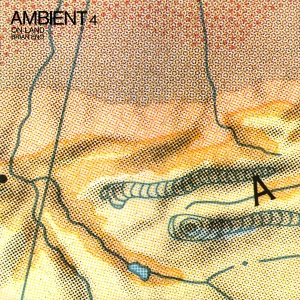
Ambient 4: On Land is the eighth solo studio album by Brian Eno, released in March 1982 by EG Records. It was the final edition in Eno's Ambient series, which began in 1978 with Ambient 1: Music for Airports. The album was released to critical acclaim, and is recognised along with its predecessors as a landmark album in the history of the ambient genre.

Apollo: Atmospheres and Soundtracks is a studio album by the British musician and producer Brian Eno, the Canadian producer Daniel Lanois, and Brian Eno's brother, composer Roger Eno. It was released on 29 July 1983 through EG Records. The music was originally written for For All Mankind, a documentary film by Al Reinert about the Apollo program, though the film was not released until 1989. The score was written and performed by the trio.

The Pearl is the second collaborative studio album by Harold Budd and Brian Eno, released in August 1984 by Editions EG and produced by Eno and Daniel Lanois in Hamilton, Ontario. The Pearl is similar to Budd and Eno's previous collaboration, Ambient 2: The Plateaux of Mirror (1980), consisting mostly of subtly treated piano textures, but with more pronounced electronic treatments and nature recordings. The album has been well received by music critics, and is considered by some as a landmark work in ambient music.
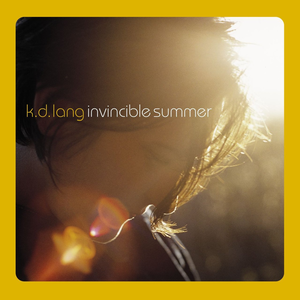
Invincible Summer is the fifth solo album by k.d. lang, released by Warner Bros. Records in 2000. The album's title derives from a quote by Albert Camus: "In the depths of winter, I finally learned that within me there lay an invincible summer."

Abdul Mati Klarwein was a German painter best known for his works used on the covers of music albums.

Birdy is the first soundtrack and sixth album overall by the English rock musician Peter Gabriel for the movie of the same name, released in 1985. The album marked Gabriel's first work with producer Daniel Lanois. It was remastered with most of Gabriel's catalogue in 2002.

My Life in the Bush of Ghosts is the first collaborative studio album by Brian Eno and David Byrne, released in February 1981. It was Byrne's first album without his band Talking Heads. The album integrates sampled vocals and found sounds, African and Middle Eastern rhythms, and electronic music techniques. It was recorded before Eno and Byrne's work on Talking Heads' 1980 album Remain in Light, but problems clearing samples delayed its release by several months.
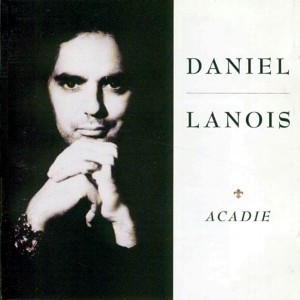
Acadie is the debut studio album by record producer and singer-songwriter Daniel Lanois, originally released in 1989 by Opal Records and Warner Bros. Records. It was largely written and recorded in the city of New Orleans. Lanois sings on it in both French and English, sometimes on the same track. It was reissued in 2005 with new cover art and then issued again in 2021 as Acadie and only the 2021 edition is available for streaming. Acadie was named the 20th greatest Canadian album of all time in Bob Mersereau's 2007 book The Top 100 Canadian Albums.

For the Beauty of Wynona is the second album by Canadian songwriter and record producer Daniel Lanois. It was released on March 23, 1993.
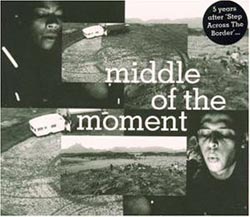
Middle of the Moment is a soundtrack by English guitarist, composer and improvisor Fred Frith, of the 1995 documentary film, Middle of the Moment by Nicolas Humbert and Werner Penzel.

Fourth World, Vol. 1: Possible Musics is an album by Jon Hassell and Brian Eno. It was recorded at Celestial Sounds in New York City and released in 1980 by Editions EG, an imprint label of E.G. Records. "Fourth world music" is a musical aesthetic described by Hassell as "a unified primitive/futuristic sound combining features of world ethnic styles with advanced electronic techniques." The album received praise from many critics.
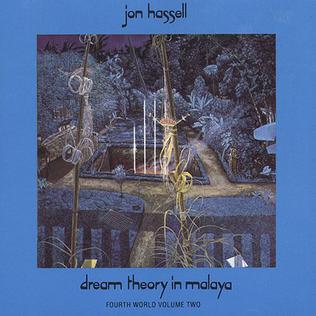
Dream Theory in Malaya: Fourth World Volume Two is an album by Jon Hassell, released in 1981. It is the sequel to his collaboration with Brian Eno, Fourth World Vol. 1: Possible Musics, which was released the previous year. The recording draws influence from the culture of the Senoi people of Malaya.

The Million Dollar Hotel: Music from the Motion Picture is the soundtrack to the 2000 film The Million Dollar Hotel. The album was released alongside the film in March 2000, and featured Bono as its executive producer, with new music from U2 and other artists.

Hooteroll? is a jazz-rock fusion album by Howard Wales and Jerry Garcia.

Ocean of Sound is a 1996 compilation album compiled and produced by English musician and author David Toop. The two-disc, cross-licensed "various artists" compilation contains 32 tracks culled from a variety of musical sources, including dub, exotica, free jazz, and field recordings. Toop compiled the recordings to serve as both a historical survey of ambient music and an aural companion to his 1995 book Ocean of Sound: Aether Talk, Ambient Sound and Imaginary Worlds.
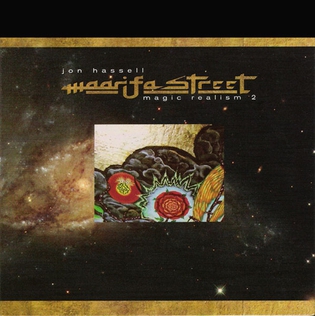
Maarifa Street is an album by Jon Hassell. It was released on the Nyen label in 2005. The album was recorded live in Milan, Montreal and Paris, with the exception of "New Gods" which was recorded in Game Room Studios, Los Angeles. It was dedicated to the memory of Mati Klarwein.
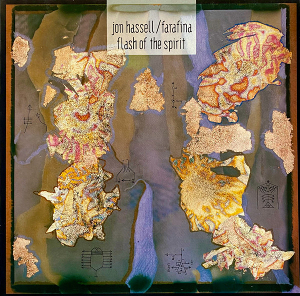
Flash of the Spirit is an album by the American musician Jon Hassell and the Burkinabé musicians Farafina. It was released in 1988, with an American release the following year. A remastered edition was released in 2020.

Earthquake Island is a studio album by Jon Hassell, released in 1978 by Tomato.




















